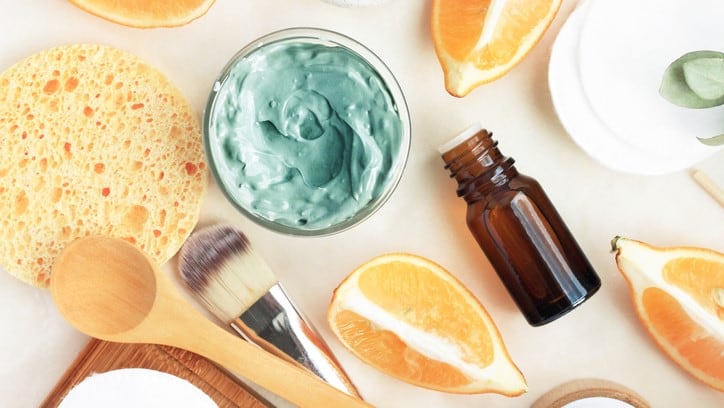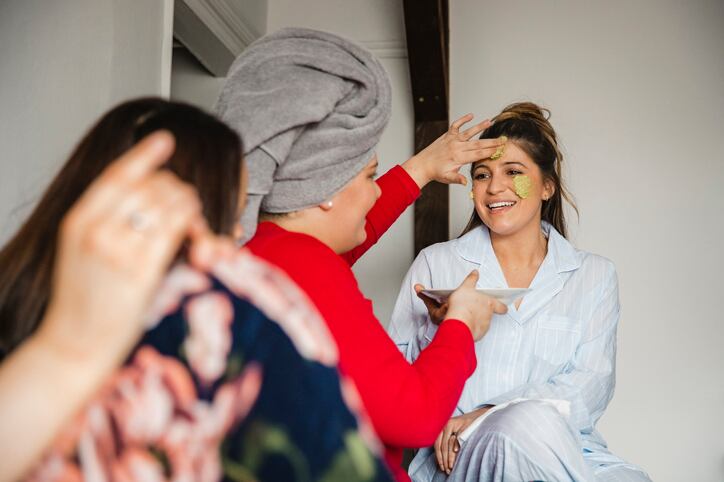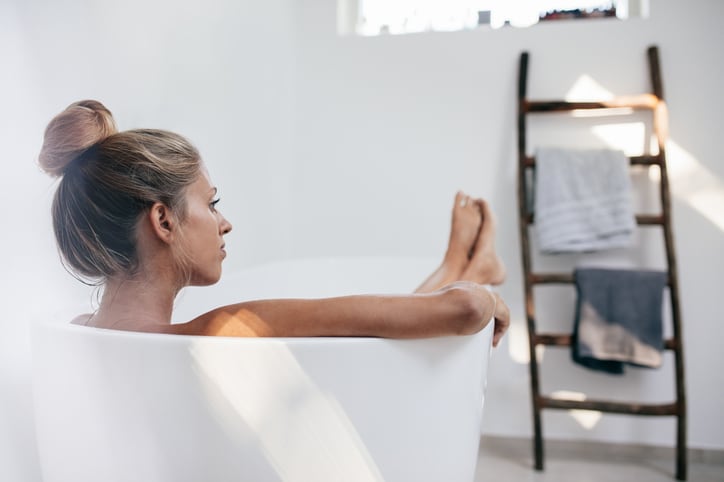Writing in its annual Beauty Survey 2020 report, the market research firm identified these three trends as key in shaping this year's beauty and personal care industry – all of which had risen or become important in the context of the ongoing global pandemic.
“The shopping and consumption habits of consumers globally shifted dramatically in 2020, as the coronavirus (COVID-19) pandemic forced many to stay home. This shift has had a far-reaching impact within the beauty and personal care industry,” wrote Lisa Holmes, global head of surveys at Euromonitor International, in an extract of the report.
Digital beauty research, brand interactions and online shopping had “accelerated” because of these shifts; personal hygiene and hand washing had become a “critical element” of everyday grooming; and self-care was now “frequently associated” with hot baths, home manicures and self-applied face masks, Holmes said.
“While some of the more extreme limitations on everyday life seen in 2020 may be rare occurrences going forward, there is no doubt that many aspects of consumer behaviour have shifted for the long-term,” she wrote.
The online beauty shift – 34% of consumers now ‘digital beauty’ shoppers
Findings from Euromonitor International’s annual beauty survey – conducted in June and July 2020 – showed 34% of consumers could now be considered ‘digital beauty’ shoppers, meaning they purchased products online and/or were influenced by digital media and online user- or expert-generated content when shopping for and using products.
In skin care, 21% of consumers were now digital shoppers; in hair care 19%; and in colour cosmetics 16%. Survey findings showed that in skin care and hair care, 41% of shoppers were also looking for personalised solutions and in colour cosmetics this was 30%.
“2020 has been characterised by a rapid shift to online shopping as the COVID-19 pandemic confined consumers to their homes on a global scale. Within beauty and personal care, digital platforms have brought brands, retailers, influencers and beauty advisors closer to consumers, like never before,” Holmes wrote.
E-commerce developments had also helped brands gain “easy access” to new markets, she said, creating a “common digital shelf” for global, local, private label and independent brands to compete for consumer attention and spending.
“In the beauty and personal care industry, it will continue to be essential for brands and retailers to build their digital engagement and online shopping platforms to capture customers who are growing more comfortable buying skin care, hair care and cosmetics without first examining in person.”
The rise of personal hygiene, more specifically hand hygiene
Euromonitor International also found personal hygiene, specifically hand hygiene, had risen in importance during COVID-19. Findings showed 93% of consumers now washed their hands at least twice a day and over half did so five or more times. Over 60% of consumers also reported using a sanitising product at least twice per day.
“Hand washing and sanitising have always played a large role in the daily hygiene habits for most consumers. These habits have been magnified in 2020 with health experts citing hand washing as a key weapon of protection against COVID-19,” Holmes wrote.
And whilst daily hand washing was a “near-universal habit among global consumers”, the report noted it was more prevalent among consumers aged 35+ and more frequent among women. By contrast, use of hand sanitising products peaked among consumers in their 30s and dropped off considerably with consumers over 60 and under 25.
Euromonitor International said the rise of hand washing and sanitising had, in turn, fuelled increased needs for hand care products, particularly lotion and creams – reflected in consumer use trends. Survey findings showed 44% of consumers used a hand care product at least once per day, with scented and sun protection variants proving particularly popular.
Self-care shifts to at-home treatments and indulgences
The ongoing COVID-19 crisis had also propelled at-home self-care to the fore, Euromonitor International said.
“For many consumers in 2020, focus has shifted from out-of-home treats such as salon visits, to ‘self-care’ activities that can be done from the comfort and safety of home,” Holmes wrote.
Baths were being considered an “indulgence and an opportunity for relaxation and self-care”, with 60% of consumers in their late 20s and 30s taking a bath at least once a week, according to the survey.
At-home manicures and pedicures were also “common elements” of self-care routines, with 55% of women painting their nails monthly as a minimum. Deep conditioning hair treatments and beauty face masks were also increasingly popular, with two-thirds of women and one-third of men applying the latter at home at least monthly.
“Even when consumers venture back into salons and spas, at-home self-care habits will persist as many seek lower cost, convenient options for indulgence,” Holmes wrote in the report.




